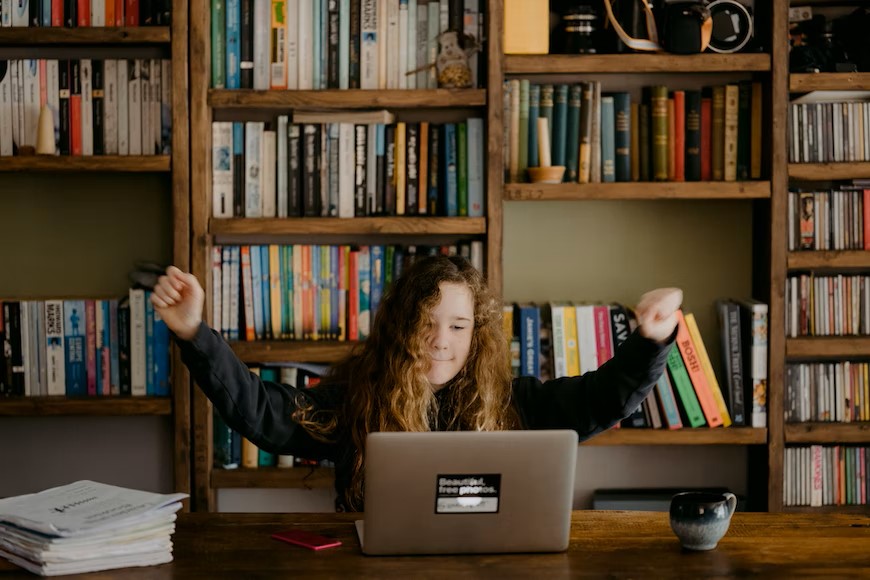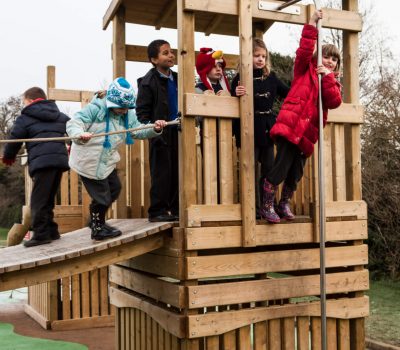


Our team sorts through all blog submissions to place them in the categories they fit the most - meaning it's never been simpler to gain advice and new knowledge for topics most important for you. This is why we have created this straight-forward guide to help you navigate our system.


And there you have it! Now your collection of blogs are catered to your chosen topics and are ready for you to explore. Plus, if you frequently return to the same categories you can bookmark your current URL and we will save your choices on return. Happy Reading!
It’s tempting to encourage teens to study as much as possible during exam season, but doing so can be detrimental to their education and general wellbeing. Not only can their physical health suffer as a result of overworking, but it could also come to the detriment of their mental health. Here are three reasons why switching off can help teens during exam season.

Burnout is a form of work-related stress in which people feel physical and emotional exhaustion due to overworking. It leads people to feel a lack of connection to their work and a loss of their personal identity. It can affect students in relation to their schoolwork just as much as it can affect adults in relation to their careers.
When it affects teens, it can cause them to feel disinterested in the things that would usually bring them pleasure. It can also lead to sleep problems, poor appetite, irritability and isolation. Some of the best ways to prevent burnout in teens include making sure they take plenty of breaks from studying and have time to socialise and enjoy their hobbies.

Both long and short breaks from learning are important for committing information to memory, which is why teens need to rest up properly in between study sessions. Sleep supports the strengthening of neural connections that make up our memories, so it’s vital that teens don’t stay up studying until the early hours of the morning and instead schedule at least 7 hours of sleep each night.
Short breaks are also important for memory and learning. Research found that the performance of new skills is improved by short, frequent breaks. A good approach to take is the Pomodoro method which is 25 minutes of study followed by a five-minute break, with a 10-minute break after every four 25-minute sessions.

Embarking on different activities can help to support creativity in your teen which might help them approach learning and studying from a new perspective. When studying for long periods of time, it’s easy for teens to get frustrated when they struggle to understand concepts or find solutions to problems. By switching off from studies to enjoy different activities, teens might find they return later with a fresh outlook that helps them solve problems or better understand key concepts.
Creative activities like playing an instrument, creative writing, painting, crafting or performing are particularly effective in helping teens explore new perspectives and ideas that could support their studies. Having a creative outlet could also help teens keep study-related stress at bay.
It’s common for teens to feel under pressure to work non-stop when facing exams, but it’s vital that they rest. Encourage them to switch off regularly for the sake of their wellbeing, and remind them that taking breaks will help them to perform at their best with each exam.

The author

Read more

Read more

Read more

Read more
Read more

Read more

Read more

Read more


Are you looking for solutions? Let us help fund them! Nexus Education is a community of over 11,000 schools that come together to share best practise, ideas and CPD via online channels and free to attend events. Nexus also offers funding to all school groups in the UK via nexus-education.com


Established in 2011, One Education is a company at the heart of the education world, supporting over 600 schools and academies. Our unique appeal as a provider is in the breadth and synergy of the services we offer, supporting school leaders, teachers and support staff to achieve the best possible outcomes for their pupils and staff.

School Space is a social enterprise that has empowered schools for over 12 years through their profitable and hassle-free lettings services. So far, they’ve generated over £5 million in revenue for education, helping to connect over 200 schools with their local communities.


Unify is an online sales and marketing tool that allows users to create tailored personalised documents in moments.


There’s nothing special about the energy we sell. In fact, it’s exactly the same energy as all our competitors provide. But there is something special about the way we do it. Where others complicate the process, we simplify it. Where others confuse customers with hidden terms, we’re an open book. And where others do all they can to make as much money from their customers as possible, we do all we can to make as little. Everything we do, we do it differently. Our customers are a privilege. One we’ll never take advantage of.


Securus provide market-leading monitoring solutions to safeguard students on ALL devices both online and offline. We also offer a full monitoring service, where we carry out the monitoring on behalf of the school, freeing up valuable staff resources. From the smallest school to large MAT groups, Securus offers safeguarding protection for all!


Bodet Time offers dedicated solutions to education through lockdown alerts, class change systems, PA and synchronised clock systems. Improving time efficiency of the working and school day; ensuring safety through lockdown alerts; increasing communication with customised broadcast alerts.


Robotical makes Marty the Robot - a walking, dancing coding robot that makes programming fun and engaging for learners as young as 5. Our robots come with a full Learning Platform that has complete teaching resources, to make lesson planning a breeze.